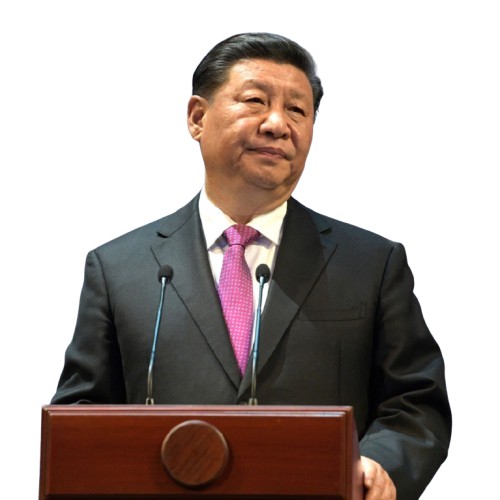OPINION by: Seringe S.T. Touray
Editor-in-Chief, The Fatu Network
We’ve grown up with the script: China is the villain, the West is the moral compass. As a former Western colony, shaped by the worldview of London and Washington, we were conditioned to believe that the United States and Europe stand for democracy, human rights, and international law. China, on the other hand, was cast as the autocratic power to be feared or distrusted. But the irony today is as stark as it is uncomfortable. On the issue of Gaza, and more broadly, on Israel’s conduct, China is sounding more like us than the people who taught us what justice is supposed to mean.
Take China’s stance on Israel and Palestine. It has been sharp, consistent, and legally grounded. On 1 April 2025, during hearings at the International Court of Justice (ICJ) on Israel’s responsibilities as an occupying power, Ma Xinmin, Legal Adviser to China’s Ministry of Foreign Affairs and a Member of the United Nations International Law Commission, stood up and said what many Western powers wouldn’t.
“Palestinians in the occupied territory have endured persistent suffering,” he declared. He outlined Israel’s legal obligations under international humanitarian law and said it must “allow and facilitate humanitarian assistance from third parties,” calling the blockade of Gaza a violation of those obligations.
Ma also defended the role of UNRWA, which he called “indispensable and irreplaceable,” and criticised Israel for obstructing its operations. He quoted President Xi Jinping, stating that “the humanitarian cause is humanity’s shared mission,” a rare statement of moral clarity in a time when the language of human rights has been so heavily politicised.
On 13 June, at the United Nations Security Council, Fu Cong, China’s Permanent Representative to the UN, issued a similarly forthright condemnation, this time of Israel’s strikes inside Iran. He warned of the “grave consequences” of such actions, denounced the violation of Iranian sovereignty, and stressed that escalating conflict “serves no one’s interests.” This came just days before President Xi Jinping echoed the same concern in a bilateral meeting with Uzbek President Shavkat Mirziyoyev on 17 June, where he opposed “any actions that violate the sovereignty and territorial integrity of other countries,” and offered China’s support in restoring peace and stability.
These are not empty declarations. China has backed them with diplomatic action, humanitarian support, and legal argumentation. It has urged evacuations from both Israel and Iran, supported international mechanisms, and, unlike much of the West, has not shied away from naming the aggressor.
Compare this to the posture of the United States and much of Europe. These are the same governments that endlessly lecture the world on human rights, yet continue to send weapons to Israel while shielding it from international accountability. They have actively undermined South Africa’s genocide case at the ICJ. They blocked UN resolutions for ceasefires. They say they want peace, but their actions suggest impunity.
That said, not all of Europe is complicit. Countries like Spain and Ireland have taken courageous, principled positions. They have condemned Israel’s actions and recognised Palestinian statehood. But they remain in the minority. The broader Western bloc, led by Washington, has looked away. As Gaza suffers, they continue to speak in euphemisms, offering “concern” instead of condemnation, and “support for humanitarian access” while refusing to halt arms exports that fuel the crisis.
Meanwhile, footage continues to emerge from Gaza that should shatter any illusion of moral high ground. Just yesterday, CNN verified a video showing machine gun fire near an aid distribution site in southern Gaza. Eyewitnesses said the Israeli military opened fire on Palestinians waiting for food. Dozens were seen lying flat on the ground as bullets kicked up sand around them. The Israeli military has said it is reviewing the video. But the world is watching, and remembering.
And it is not just China speaking up. Our own neighbour, Senegal, is doing so too. Under President Bassirou Diomaye Faye, Senegal became a founding member of the Hague Group, alongside countries like South Africa, Bolivia, Colombia, and Malaysia. Formed on 31 January 2025, this coalition is currently holding its first emergency summit in Bogotá, where it is discussing coordinated legal and diplomatic measures, support for ICC arrest warrants, restrictions on arms transfers, and an end to the impunity that has enabled Israel’s war on Gaza. Senegal has been a steady voice for justice, and its leadership stands in contrast to the silence of many others.
Even The Gambia, despite early hesitation, has found its voice. Back in May 2024, Foreign Minister Dr. Mamadou Tangara said The Gambia would not sever ties with Israel, insisting the country was “a sovereign state” that does not “act by reacting to the reactions of others.”
But by June 2025, the tone had shifted. At the OIC Foreign Ministers’ meeting in Istanbul, Tangara strongly condemned Israel’s strikes on Iran, calling them “a blatant act of assault against a sovereign state.” He warned of famine threatening 290,000 children in Gaza and reaffirmed Gambia’s support for Palestinian statehood based on 1967 borders, with East Jerusalem as the capital. “The diplomatic route is the only viable and durable solution to the conflict in the Middle East,” he said.




